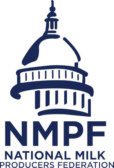IDFA, NMPF applaud introduction of School Milk Nutrition Act of 2017
The bill calls for schools to offer low-fat and fat-free milk, including certain flavored milk, to participants in federal school lunch and breakfast programs.
The International Dairy Foods Association (IDFA), Washington, D.C., and the Arlington, Va.-based National Milk Producers Federation (NMPF) applauded the introduction of a bipartisan bill on Oct. 24 to help reverse the decline of milk consumption in schools.
The School Milk Nutrition Act of 2017, introduced by Reps. G.T. Thompson (R-PA) and Joe Courtney (D-CT), would allow schools to offer low-fat and fat-free milk, including flavored milk with no more than 150 calories per 8-ounce serving, to participants in the federal school lunch and breakfast programs, IDFA and NMPF stated. The bill would let individual schools and school districts determine which milkfat varieties to offer their students.
IDFA and NMPF said they strongly support the bill and encourage Congress to pass it. Once enacted, the bill would make permanent the administrative changes in the school lunch program proposed earlier this year by the USDA. Agriculture Secretary Sonny Perdue, in one of his first official actions earlier this year, supported giving school districts the option to offer a variety of milk types as part of the National School Lunch and School Breakfast programs.
“Congressmen Thompson and Courtney recognize the nutritional role that milk plays in helping school-aged children to grow and develop to their full potential,” said Michael Dykes, IDFA’s president and CEO. “We appreciate their steadfast commitment to reverse declining milk consumption by allowing schools to give kids access to a variety of milk options, including the flavored milks they love.”
The legislation includes a pilot program to test strategies that schools could use to increase the consumption of fluid milk. This could include ways to make milk more attractive and available to students, including improved refrigeration, packaging and merchandising, the organizations said.
“Milk is the No. 1 source of nine essential vitamins and minerals in children’s diets, and when its consumption drops, the overall nutritional intake of America’s kids is jeopardized,” said Jim Mulhern, president and CEO of NMPF. He pointed out that in just the first two years after low-fat flavored milk was removed from the school lunch program, 1.1 million fewer school students drank milk with their lunch.
The act also includes a provision to allow participants in the Special Supplemental Nutrition Program for Women, Infants and Children, known as WIC, to have access to reduced-fat milk for themselves and their children.
“Expanding options for WIC participants will encourage mothers to help their young children grow up strong and healthy,” Dykes said.
Looking for a reprint of this article?
From high-res PDFs to custom plaques, order your copy today!





